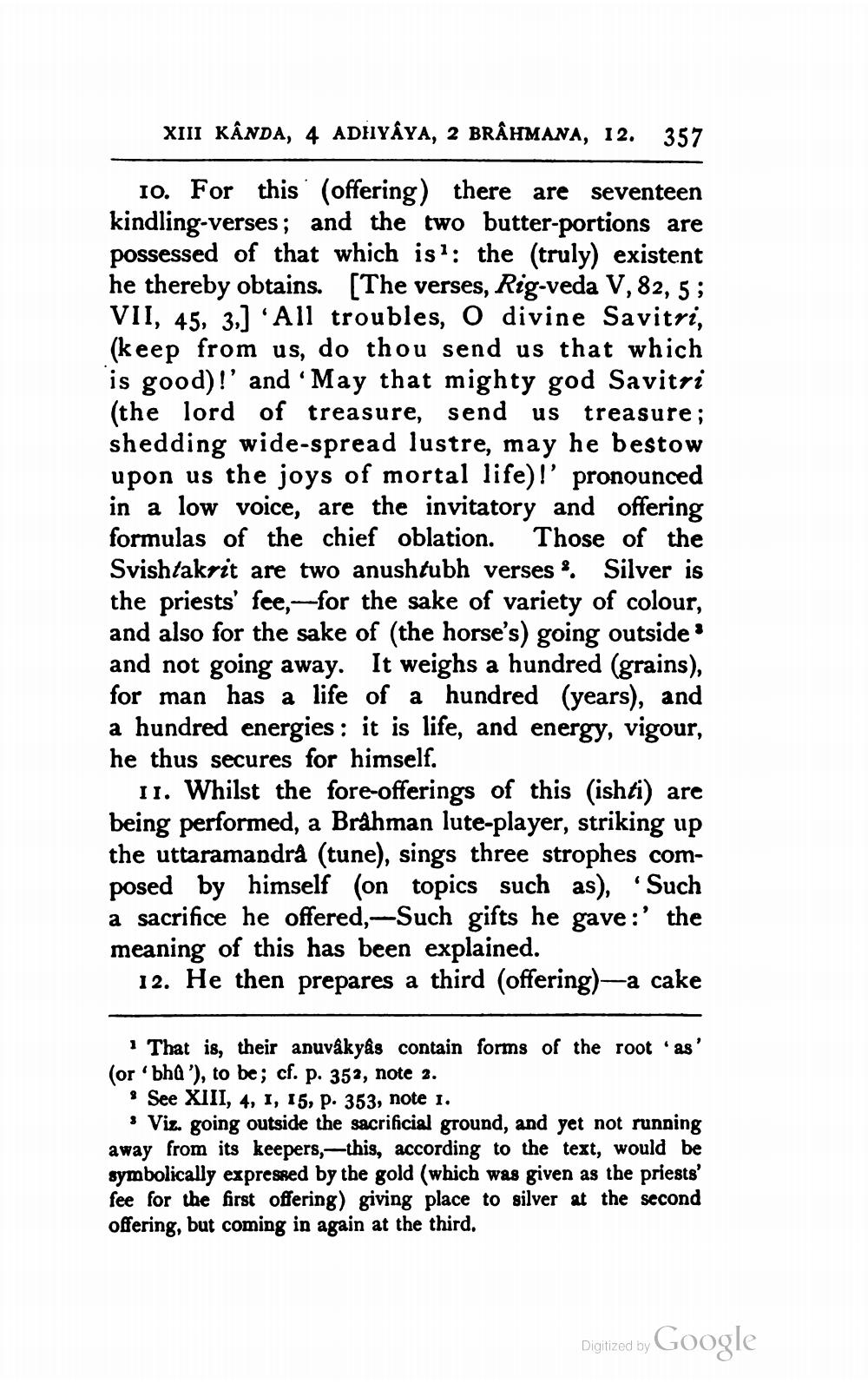________________
XIII KÂNDA, 4 ADHIYÂYA, 2 BRÂHMANA, 12. 357
10. For this (offering) there are seventeen kindling-verses; and the two butter-portions are possessed of that which is?: the (truly) existent he thereby obtains. [The verses, Rig-veda V, 82, 5; VII, 45, 3,] 'All troubles, o divine Savitri, (keep from us, do thou send us that which is good)!' and 'May that mighty god Savitri (the lord of treasure, send us treasure; shedding wide-spread lustre, may he bestow upon us the joys of mortal life)!' pronounced in a low voice, are the invitatory and offering formulas of the chief oblation. Those of the Svishtakrit are two anushtubh verses %Silver is the priests' fee,--for the sake of variety of colour, and also for the sake of the horse's) going outside and not going away. It weighs a hundred (grains), for man has a life of a hundred (years), and a hundred energies : it is life, and energy, vigour, he thus secures for himself.
11. Whilst the fore-offerings of this (ishti) are being performed, a Brahman lute-player, striking up the uttaramandrå (tune), sings three strophes composed by himself (on topics such as), 'Such a sacrifice he offered,-Such gifts he gave :' the meaning of this has been explained.
12. He then prepares a third (offering)—a cake
That is, their anuvákyâs contain forms of the root as' (or 'bha'), to be; cf. p. 352, note 2. . See XIII, 4, 1, 15, p. 353, note 1.
Viz. going outside the sacrificial ground, and yet not running away from its keepers,—this, according to the text, would be symbolically expressed by the gold (which was given as the priests’ fee for the first offering) giving place to silver at the second offering, but coming in again at the third.
Digitized by Google




